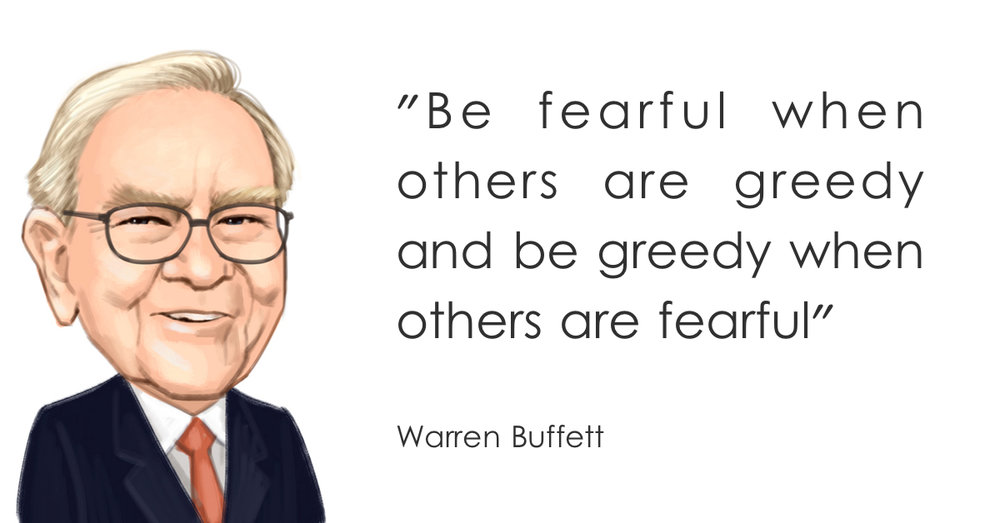This article was submitted by a Guest Contributor.
In investing, we often talk about having an edge.
Usually this is in the domain of professional firms or traders, but as retail investors, we too can sharpen our toolbox to give us an edge in our own investing.
1. Record your Wins/Losses + Lessons
The first thing you can do to have an edge in investing is to help yourself.
Even as small retail investors, we do experience wins/losses, highs/lows, and through these, we learn valuable lessons – sometimes about the markets in general, specific industries/shares, and also importantly about ourselves, and how we make decisions.
For example, you may have bought into a high-risk China growth stock that you didn’t do enough research on in hindsight, which you panic sold.
From this you learnt: (1) your risk appetite (2) how to position risky stocks in your portfolio (3) when to cut losses (4) how much information you need to know before you are comfortable with investing (5) the type of growth stock that you are less comfortable with (e.g. industry/sector/market).

As the saying goes, fool me once shame on you, fool me twice shame on me.
Every time we suffer a setback, it is actually a great learning opportunity.
However, human memory is frail and unreliable, especially when it comes to high-stakes matters like investing.
We often get caught up in the excitement of the moment, or FOMO if we see certain news or certain stock tips, and the previous lessons we have learnt simply fly out the window.
Hence, it is important to actually record these wins/losses and the LESSONS learnt – to remind yourself.
Additionally, by recording this information (somewhere easily referable – for example a document on your desktop), you can start to identify some patterns.
- Do you always lose money when you invest in certain industries?
- What triggers impulse decisions?
- Do you tend to sell too early / late?
- Why do you hesitate to invest in certain stocks (even though you have confidence in their potential)?
- Does your portfolio tend to get skewed?
2. Information Advantage
The second edge when it comes to investing is information advantage.
As retail investors, we have obvious limitations when it comes to information advantage – compared to hedge funds/institutions.
However, this doesn’t mean that we just throw in the towel, and buy any stock that we fancy without research.
As basics, I think we should at least strive to understand the nature of the underlying business/industry, and read shareholder reports or announcements somewhat regularly to figure out the direction + earnings.
There’s a reason why Warren Buffett reads 500 pages every day.
At the very least, ensuring a minimum amount of due diligence, and getting information from reliable sources is key.
For instance, first-hand sources (e.g. company announcements, annual reports), up-to-date information (e.g. Elon Musk’s tweets), high-quality news sites and blogs like Financial Horse, and also analyst reports.
BTW – we share commentary on Singapore Investments every week, so do join our Telegram Channel (or Telegram Group), Facebook and Instagram to stay up to date!
Just created a Discord server where I collate analyst reports and investing resources that I come across in my research. Hit us up here if you’re keen.
Don’t forget to sign up for our free weekly newsletter too!
[mc4wp_form id=”173″]
Another important way to hone information advantage is to exploit what you already know.
As retail investors, most of us have day jobs – which means you have an existing specialized information advantage!
This is where you can maximize your professional expertise or hobbies (many of us spend a lot of time on hobbies – and information advantage can compound from the time spent).
By making use of this existing knowledge/skills, and looking at things through an investing lens, you will hone information advantages over other investors.
It is equally important to know what you don’t know as well.


3. Implementation Advantage
The final edge investors can have is implementation advantage.
Very closely linked to #1 Tip on recording your lessons learnt from wins/losses, this is where you actually implement.
It is nothing new that most investors fail on behavioural issues – selling too quick, not putting money where their mouth is, being side-tracked, FOMO, failing to HODL etc. The list goes on and on.
One of the important indices to check investor sentiment is the Fear & Greed Index:
As Warren Buffett famously said, “Be fearful when others are greedy and be greedy when others are fearful”.

This morning star article puts it very well:
- Successful investing requires a struggle with ourselves to tune out irrelevant information, to have the strength to stick to the plan and resist the urge to follow the herd.
- Behaviour and patience may be the last real sources of sustainable edge for an individual investor. The ability to endure short term discomfort and focus on long time horizons is an enduring advantage that individuals have over professional investors.
To have an implementation advantage, we should learn to cultivate our inner Zen to make proper investing decisions.
This is obviously much easier said than done, but over time, I do believe we get better at controlling ourselves, and having the strength to stick to our investing thesis.
Resisting impulse behaviour and cultivating patience are the keys to long-term investing success!
For more investing content, follow Financial Horse on Social Media!


